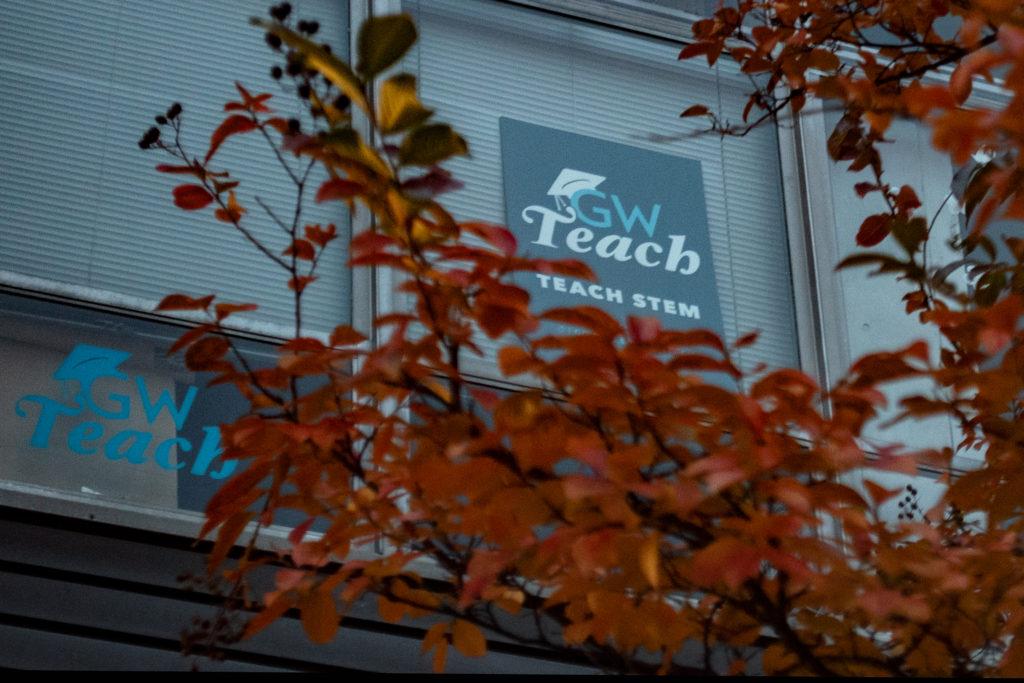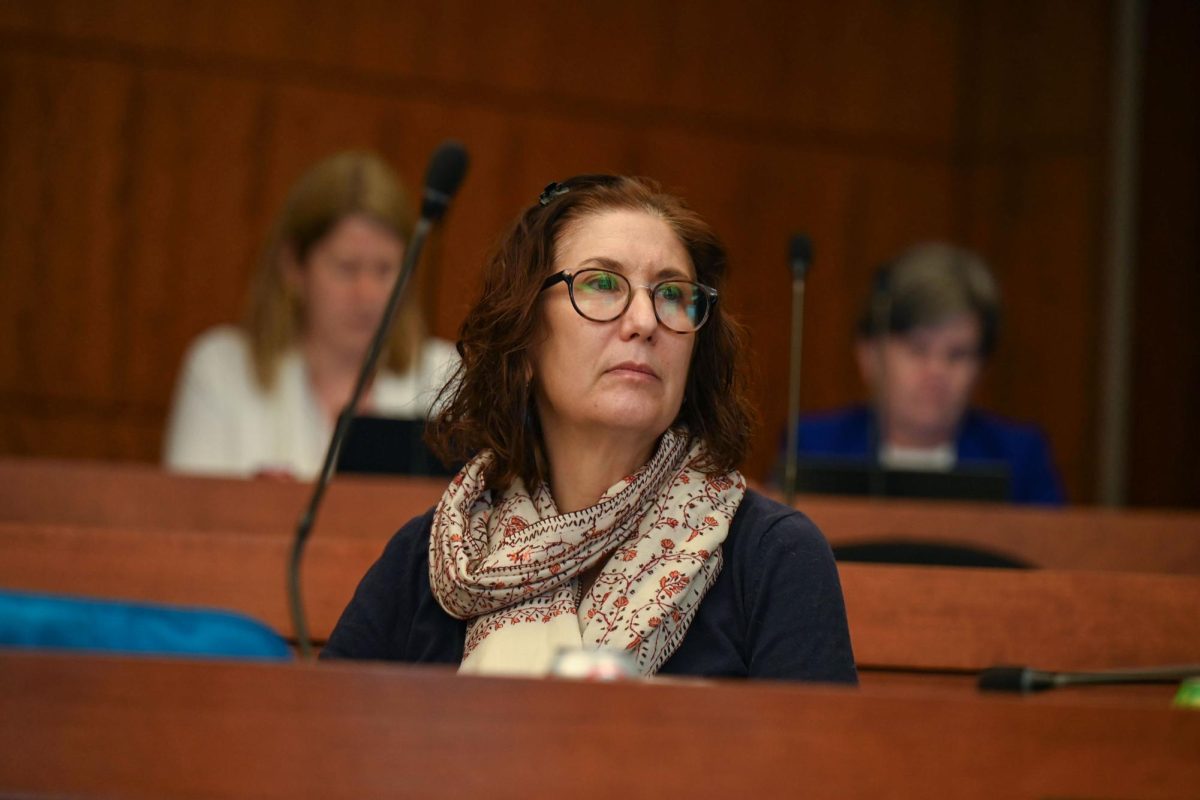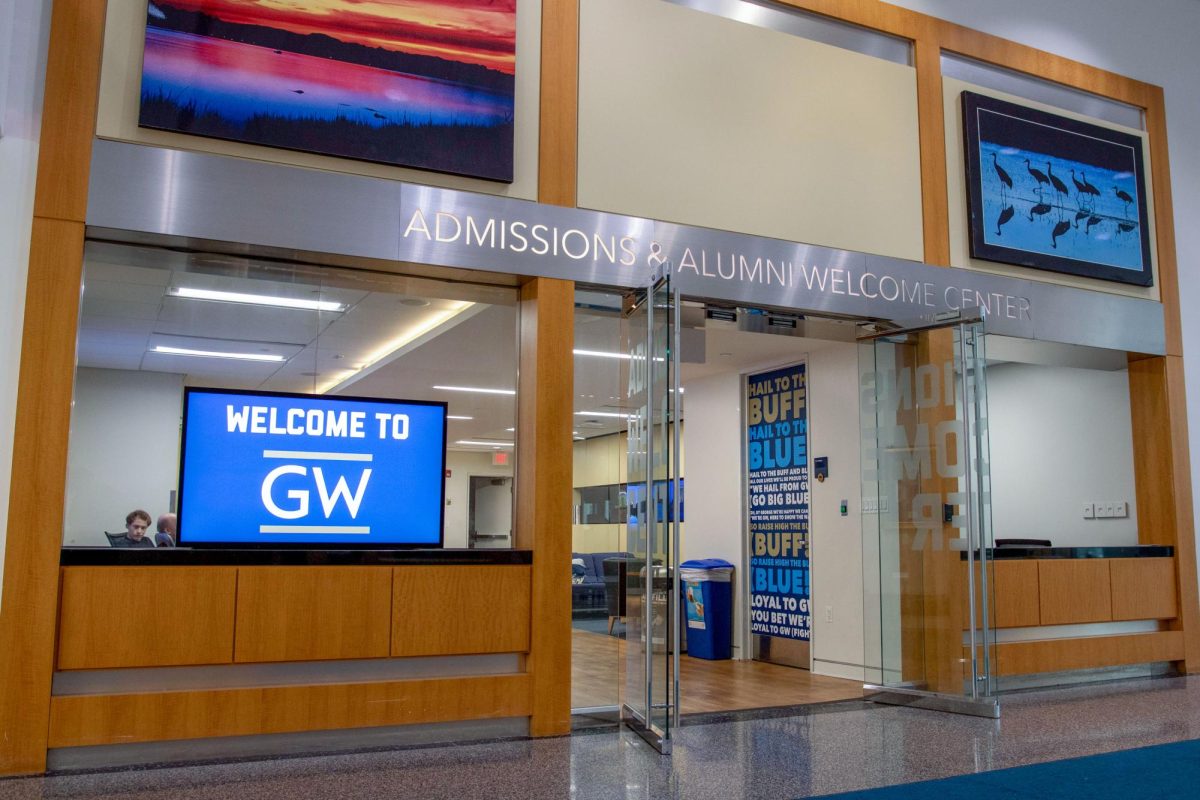Officials are “actively working” to finalize the future of the GWTeach Anti-Racist STEM Education course after a white professor said the N-word, which appeared in a painting she was showing the class, prompting her to step down from teaching the course.
Students in the course said Alicia Bitler, a GWTeach professor, said the N-word in a Jan. 18 class while referring to a painting of civil rights activist Ruby Bridges before calling her use of the N-word an “oops moment” minutes later. Students in the class proceeded to file complaints with administrators, and the Black Student Union hosted a town hall Friday evening for students to discuss Bitler’s use of the slur.
University spokesperson Crystal Nosal said officials received anonymous reports about the professor’s use of the N-word Jan. 19.
Students said officials responded three days after the class acknowledging that they had received the reports and directed students to reach out to officials for support.
“The faculty member has asked to be relieved of their teaching responsibility in the class, and [the Graduate School of Education and Human Development] began actively assembling a number of options to minimize further disruption,” Nosal said in an email.
She said officials from GSEHD, which houses the GWTeach program, and the Office of Diversity, Equity and Community Engagement met with the class to begin discussions on how to move forward and assured students that faculty would receive “appropriate preparation” for inclusive education in the future.
Bitler declined to comment, deferring to Michael Feuer, the dean of GSEHD. Nosal declined to provide further comment on his behalf.
Bitler’s faculty page states that she is “committed” to anti-racist education and “preparing future anti-racist educators.” She is still listed on the Schedule of Classes as the professor for a different GWTeach course, entitled Perspectives on Mathematics in Science.
Bitler holds a Doctorate of Curriculum and Instruction from GW, according to her faculty page. Her dissertation was about the underrepresentation of women in science, the website states.
BSU published a statement Friday condemning Bitler’s use of the N-word and offered support and “healing spaces” for students who were affected by the incident.
“Derogatory expressions have no place in our community under any circumstances, especially within our intimate learning communities,” the statement reads. “BSU acknowledges the immense harm that was done to our community that pervades beyond that particular class session.”
BSU hosted a town hall meeting via Zoom Friday. At the request of BSU leaders, The Hatchet did not attend the meeting to preserve the privacy of the town hall discussion.
Gianna Cook, the president of BSU, and Tony Peeler, the executive vice president of BSU, declined to comment.
Bitler’s use of the N-word adds to a string of racist and racially insensitive incidents at GW recently, like former white history professor Jessica Krug’s admission to falsely claiming a Black identity and former University President Thomas LeBlanc’s use of an analogy that compared theoretical support for fossil fuel divestment to “shooting all the Black people here.”
Cayton Underwood, a sophomore majoring in journalism and mass communication taking the course, said Bitler continued to teach the class after saying the slur, and Bitler said she tends to use the N-word in academic settings when reading quotations.
Bitler apologized to students in an email sent the day of the class, which was obtained by The Hatchet, for using the N-word. She said in the email she used the word “without thinking,” and she wanted to discuss the hurt she may have caused at an “open conversation” during the following class.
“The more I am educating myself, the more I am becoming aware of how damaging it can be to hear that word in a space that is supposed to be safe,” Bitler said in a separate email the next day.
Underwood said Bitler held a class discussion on Jan. 20 about how students felt about her use of the racial slur, despite guidance from Jordan West, the associate vice provost for diversity, equity and community engagement, against holding the discussion.
She said students in the class can decide if they wanted the course to be taught by guest speakers, a new professor or be held as an independent study.
She said during the class’ conversations with officials, Dwayne Wright, an assistant professor of higher education administration and the director of diversity, equity and inclusion initiatives at GSEHD, said the course’s syllabus was “simplistic” and “inadequate” and did not appropriately cover the anti-racist STEM education goals the course set out to address.
“That sparks a whole other conversation about who was reviewing this, who allowed this course to even happen, knowing that that syllabus was not good enough to teach anti-racism,” Underwood said.
Wright said officials’ current priority is to work to earn back trust among students and the GW community.
“Moving forward, we are committed to reviewing any and all policies and procedures necessary in an effort to try and ensure that such a violation of our commitment to having inclusive learning environments does not happen again,” he said in an email.
Jordan Harzynski, an undeclared sophomore in the Columbian College of Arts and Sciences taking the course, said more than a third of the class sent a letter to interim University President Mark Wrighton about a week later recommending that the University reconsider its policy on how faculty are chosen to teach classes.
“George Washington must reevaluate their course approval process and must be intentional in allowing proven experts to teach anti-racist and cultural study courses,” the letter reads. “Additionally, George Washington must place a greater emphasis in hiring African American professors to teach University-wide.”
CCAS officials are looking to hire a dozen professors in subjects like criminology, race, mental health inequities and African American studies throughout the academic year to improve diversity in the school. The push comes after several CCAS professors launched a petition last February calling for officials to implement a “cluster hire” of underrepresented faculty and increase funding for the Africana studies program.
The letter also asked Wrighton to “rethink” Bitler’s position because it would “tarnish” the reputation of the University and the GWTeach program. Officials have not said whether Bitler will be removed from the University, and Nosal declined to comment on whether GW will take action against her.
Wrighton responded in a letter, which was obtained by The Hatchet, saying that GSEHD and GWTeach officials are “actively working” to finalize a plan for the remainder of the class, and they are looking to find a new professor to take over the course. He said in the letter he will remain involved in GSEHD’s handling of the future of the class.
“I am deeply troubled by your expression of hurt, disappointment and frustration,” Wrighton said in his response. “As our country grapples with an ever-present struggle for racial equity and justice, it is important to me for you to know that I want to see every faculty member, every staff member and every student strive to live out the University’s stated commitments to diversity and inclusion.”
Jonathan Grooms, an assistant professor of curriculum and pedagogy who also met with the class last week, did not return a request for comment.
Michael Feuer, the dean of GSEHD, apologized to the class in an email, which was obtained by The Hatchet, three days after Bitler said the N-word.
“Regardless of her good intent, Dr. Bitler’s use of imagery and language was offensive and hurtful,” Feuer said in the statement. “The incident reveals that GSEHD has fallen short in our responsibility, and reinforces our determination to do better.”











